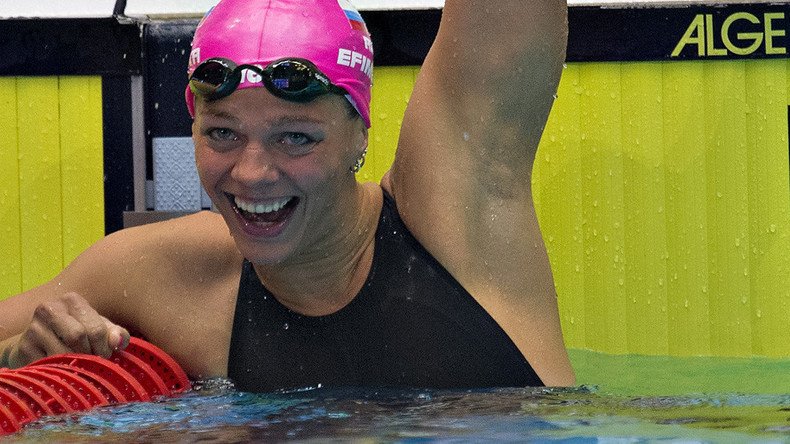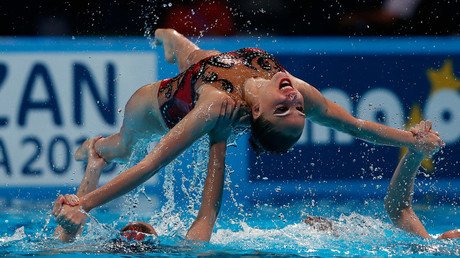Back in the swim: FINA lifts Efimova's meldonium suspension

Russian swimmer Yulia Efimova's provisional suspension for doping has been lifted by the International Swimming Federation (FINA).
The London 2012 Olympic 200m breaststroke bronze medalist was banned two months ago after testing positive for meldonium.
READ MORE: Russian swimmer Yuliya Efimova facing life ban, more sports look to ban meldonium
FINA has now granted the 24-year-old a reprieve after advice from the World Anti-Doping Agency (WADA).
A statement from FINA read: "This news follows a new recommendation from the World Anti-Doping Agency (WADA) on this case.
"WADA is to undertake further scientific research on meldonium and have therefore recommended to FINA that the suspension of the swimmer should be lifted.
"In mid-April, based on the scientific evidence made available by WADA at that time, FINA's decision had been to maintain the suspension. This was mainly due to the sequence of testing results of Ms Efimova.
"All these developments confirm the extreme complexity and sensitivity related to the inclusion of meldonium in the list of prohibited substances.
"Considering all of the above, FINA clarifies that this case is not closed. Following the outcome of WADA's scientific studies and subsequent indication on this matter, the FINA doping panel will take a decision.
"After that, Ms Efimova would be entitled to file an appeal to the Court of Arbitration for Sport (CAS)."
FINA banned the four-time world champion for 16 months after traces of meldonium were found in her system at an out of competition test in Los Angeles in 2013.
WADA added meldonium to its list of banned substances at the start of 2016, but has since admitted it was unclear how long the substance takes to clear the body.
Top tennis player Maria Sharapova and figure skater Ekaterina Bobrova are amongst the Russian athletes who have tested positive for meldonium, but the lifting of Efimova's ban will be a boost to their hopes of returning to competition.
Sharapova's future in tennis has been in doubt after she revealed she had tested positive for meldonium at the 2016 Australian Open.
Russian Tennis Federation president Shamil Tarpishchev told the R-Sport news agency that Sharapova's situation was “bad,” and suggested the five-time Grand Slam champion may never play tennis again.













